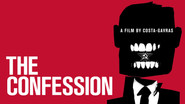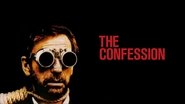Hellen
I like the storyline of this show,it attract me so much
Stellead
Don't listen to the Hype. It's awful
Afouotos
Although it has its amusing moments, in eneral the plot does not convince.
Edwin
The storyline feels a little thin and moth-eaten in parts but this sequel is plenty of fun.
evanston_dad
"The Confession" is an uber-bleak film that stars Yves Montand as a loyal member of the Communist party who is turned on and made a scapegoat of when the party becomes paranoid about informers. He is imprisoned and systematically tortured until he admits to crimes against the party he didn't actually commit. Simone Signoret has a much smaller role as his wife, who sees her home invaded by Communist party thugs during the time in which her husband is in prison."The Confession" I think provides a good illustration of the pitfalls of Communism, which, despite its merits on paper, rarely works as an actual system. Those who adhere to it feel too persecuted to remain secure for long, and they turn against each other, convinced of double crossings and disloyalty to the party. It reminded me very much of the excellent novel "Darkness at Noon," which similarly examines the ways in which Communism eventually falls apart in practice.I can't say I necessarily enjoyed "The Confession." It's extremely one-note; the film doesn't really have much of a dramatic arc. It's not able to marry the qualities of political expose and thriller the way another of director Costa-Gavras's classics, "Z," is. But I would still recommend it.Grade: B+
gavin6942
Anton Ludvik, aka Gerard, is vice-minister of Foreign Affairs of Czechoslovakia. He realizes he is watched and followed. One day, he is arrested and put into jail, in solitary confinement. Will be shown the mental tortures during the investigations and how a faithful top-ranking civil servant is made to confess to treason.A French political thriller based on a real story in Czechoslovakia? Wow! This actually makes a lot of sense. The Czech people do not have many stories told about them, but they do happen to live in an unfortunate area, sandwiched between Germany and Russia. And, as we know, throughout the 20th Century, those two nations liked to assert their influence on the neighbors.It is so great to see the story here of a man who stood against the Nazis now having to fight back against the politicians he helped support (sort of).
Rodrigo Amaro
In "L'Aveau" Costa-Gavras breaks at once and for all in defending one political ideology and attacking the other, like he did in "Z". This time he goes to show that both sides have their problematic aspects, they all make severe mistakes, we can't know which was good and which was bad. The bottom of line is that both with capitalism and communism someone decent always had to pay the prize for trying to do the right thing.Yves Montand plays the victim once again (murdered in "Z" and arrested by militants in "Etat de Siege" closing the combative Gavras political trilogy, "Missing" goes as an addendum, made years later after those films), a Czech and Communist vice-minister who'll be arrested and suffer on the hands of other members of the party who consider him a traitor of their cause. They believe he was a spy who had connections with American officials and all they want is a full confession of his crimes, which never existed, never happened (and they know that!), using of mental and physical methods to achieve results with the prisoner. The confession extraction is the real purpose to be visualized in here, exploited in painful and realistic details, methods used by the Communist - I recalled some of the descriptions made by Soljenitsin in "Gulag Archipelag", released on the same year as "L'Aveau" - like privation of sleep, keep marching at all times inside of the cell, and many other horrible techniques they used on prisoners during months and years if possible in order to break their resistance and confess everything, real or not.We have to give plenty of credit to Montand during those scenes, which are not few. Definitely not an easy shooting to make, you feel his exhaustion, weakening each frame goes by, the visible weight-loss, he went to extremes very few actors can reach and no, this isn't much method acting, one does not go in training method for those scenes, he just put himself there at each sequence. It doesn't go well for the character and it sure does not go well with the audience. It's hard to watch since the brutality and the frequency everything happens is so repetitive as if Gavras was trying to make the people in the audience to break out from the movie when in fact he's just being real with the events, causing some stir in us to the point where we ask ourselves how come this guy is not guilty of treason. In this manifest against the totalitarianism, the writer and director seemed to not making of the Socialists the almost heroes they were in "Z", while investigating the assassination of the popular leader. Their destructive paranoia, the unsubstantial suspicion they had with their own members, it's all a smoke curtain to hide the flaws of bigger people working on the Party and to hide the failures of a deeply flawed and inconsistent regime. Authentic, honorable and well-acted in all possible ways, just not much easy to endure. But truthful, powerful, haunting and rewarding nonetheless. 9/10
writers_reign
More often than not it's disappointing when an elusive film finally turns up and often the disappointment is in direct proportion to how badly one has looked forward to seeing it but I'm delighted to say that this one lived up to my expectations. Bowing as I do to no one in my love, respect and admiration for Yves Montand both as singer and actor I have, not unnaturally read all the books by and about him, bought all the albums but not, alas, seen all the films and of those elusive titles this one was the most sought-after. I knew by definition of Montand's strong Left-wing convictions - the son of an active Communist with a brother equally active and eventually high-ranking in the party -which if anything intensified after his marriage to Simone Signoret so that their life together was punctuated not only by concerts and film making but also by pro-Communist crusading (over the years they signed literally dozens of petitions)yet despite that background he agreed to make a film based on the real-life experience of Artur London, a high-ranking Communist in what was then Czechoslovakia, who, in a Kafkaesque nightmare was arrested and tortured - both mentally and physically - by fellow Communists with the end result of obtaining a confession (L'Aveu is, of course, French for confession) that he had betrayed the party. I'm about as far from a political animal as you can get whilst conversely I'm the nearest thing to Montand-For-President and that, pretty much is how I approached the film. Montand is fantastic. Let me put it another way: Montand is FANTASTIC. Required to run a gamut from suspicion at one end to mental and physical exhaustion at the other he inhabits the part completely. Considering that films are shot out of sequence and over a period of several weeks or months the manner in which he not only sustains a performance but builds it piece by piece like Jacques Villeret building an Eiffel Tower of matches in Diner du Cons is masterful. As a take on the way in which the Communist mind works (or worked) it is illuminating and full of wry touches in the dialogue as when Montand, urged to confess his mythical crimes argues quite naturally that if he IS a traitor then how can they believe anything he says, if he is NOT a traitor why is he in prison. The only negative is that I saw it in a small Art House in Paris as part of a Costa-Gavros retrospection and it's unavailable on DVD. Highly recommended.




